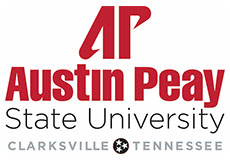 Clarksville, TN – Austin Peay State University (APSU) students are working side-by-side with Eriksson College of Education faculty members to produce original, scholarly research through four Collaborative Research Labs, which have produced multiple presentations and publications.
Clarksville, TN – Austin Peay State University (APSU) students are working side-by-side with Eriksson College of Education faculty members to produce original, scholarly research through four Collaborative Research Labs, which have produced multiple presentations and publications.
New students are now being accepted to join these labs, which provide resume enhancement, foster academic support, and offer valuable mentoring opportunities.
Lab for Explorations of the Nature of Science for Equitable Sustainability
Drs. Philip and Donna Short, co-directors of the Jack Hunt STEM Center, spearhead this cutting-edge lab dedicated to enhancing scientific literacy, fostering environmental consciousness, and harnessing integrated STEM knowledge.
“We are trying to research issues with students who come with different lenses of experience and thought to provide a greater range of insights,” Philip Short said. “We often say that science is seeing what has been seen for 10,000 years, but in a different way.”
Philip Short explained that the lab offers a haven for those passionate about scientific inquiry, encouraging the reevaluation of assumptions and the exploration of the interface between the known and the unknown. Past research endeavors have delved into STEM education strategies, community impacts of environmental education programming, and the societal influence on equity and social justice in education. The lab published “The Age of Inference: Cultivating a Scientific Mindset” in 2022, which was significantly bolstered by student involvement.
Reading and Executive Function Lab
Dr. Zack Barnes leads the Reading and Executive Function Lab, which delves into the intersection of executive function, socioeconomic status, and reading development. Executive function comprises working memory and cognitive flexibility, which are both pivotal for K-12 reading skill development.
“I’m really focused on the reading process,” Barnes said. “I work with a really large national data set that has this information collected. Then, I’m also interested in how science teachers use literacy strategies to instruct in science.”
“I’ve worked with two or three undergraduates so far, and I’ve really enjoyed working with them,” Barnes said.
Barnes welcomes students from various disciplines, including business, psychology, and mathematics.
DATA Research Lab
This lab, led by Drs. John McConnell and Hanrui He of the APSU Department of Educational Specialties is a dynamic team that comprises Austin Peay State University students, staff, and faculty. This research lab specializes in the analysis of secondary and institutional data sets, with a current project focusing on using machine language to dissect qualitative data from Austin Peay student responses to the National Survey of Student Engagement survey.
Motivated doctoral or master’s students who have successfully completed statistics and research methods courses are invited to join the lab. Participants will gain valuable experience in collaboration and data analysis, preparing them for future academic or research-oriented careers.
“We want them to apply what they learn in the stats classes to hopefully solve problems for the University – problems that they’re interested in,” McConnell said.
The lab frequently collaborates with Austin Peay State University’s Decision Support and Institutional Research Office, addressing topics relevant to dissertations and full-time jobs in the education sector, particularly for students in the Ed.D. program.
The lab’s mission is to bridge the gap between classroom learning and real-world applications, fostering a love for research and data-informed decision-making among students. The ultimate goal is to engage students in conference presentations, publications, grant proposals, and related opportunities.
Virtual Educational Research/Applied Linguistics Lab
This dynamic cross-disciplinary Lab is helmed by Dr. Andrea Lee, an assistant professor in the Department of Educational Specialities; Erica Boone, a visiting assistant professor in the Department of Teaching and Learning; and Dr. Tyler Nolting, an assistant professor in the Department of Health & Human Performance.
This lab accepts undergraduate and graduate students and visiting scholars from international institutions, such as South Korea’s Konkuk University and Saudi Arabia’s Prince Sultan University. The focus extends beyond doctoral students’ education, welcoming individuals interested in language, statistics, and other areas of study.
Lee emphasized that commitment and productivity are key qualifications for participation.
“Anyone is welcome to join as long as they’re committed and they can get things done,” she said.
Participants engage in developing arguments, hypotheses, data collection, analysis, and research paper publication. Research topics span various areas, including first-generation college students, educational support for Afghan youth in the U.S., and social studies teacher preparation in Tennessee. Lee underscored the importance of leveraging these labs for academic growth, particularly for graduate students pursuing theses and dissertations.
“Especially for our students going into academia, they really need to start publishing and presenting more,” she said. “Just having a doctoral degree is not enough in this job market.”
Get Involved
Austin Peay State University students can contact faculty advisers individually to request to join a Collaborative Research Lab. Additional information and contact information are available on the Eriksson College of Education website.



